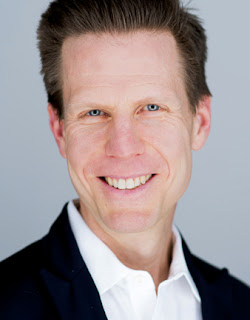Yes, it will take you some time to read Joshua Spodek's book, Leadership Step by Step. Yes, it will be a little like doing "homework." Yes, this is a book you'll read and likely need to revisit a few times for the concepts to fully sink in. Yes, this is a book you must read if you want to become the person others will follow.
The time and effort you put into, Leadership Step by Step, will be well worth it!Spodek guides you through what to do and how to do it in an integrated and comprehensive progression of exercises designed to cultivate key abilities, behaviors, and beliefs through experiences.
The progression contains four units:
- Understanding Yourself
- Leading Yourself
- Understanding Others
- Leading Others
Each chapter within the four units provides you:
- Hands-on Exercises
- Reflection Questions
- Post-Exercise Observations
"By the time you finish the book, you'll have competed 22 exercises." explains Spodek, who is an Adjunct Professor at NUY and a lecturer for Columbia Business School.
Joshua Spodek
Question: Which of the following units do most leaders struggle most with? And, why?
- Understanding Yourself
- Leading Yourself
- Understanding Others
- Leading Others
Spodek: My experience tells me leaders struggle equally with all four areas, though they excel in all four too. We all have blind spots, and those blind spots show up in each area, so most leaders could stand to improve in each.
What Vince Lombardi said about winning applies to leadership: it's not a sometimes thing, it's an all the time thing. If you lead effectively some of the time, or in some areas, but not all the time, or in all areas, you're liable to fail unexpectedly.
The good news is that improving in each area, when you have effective exercises that give you relevant experience, is rewarding and often fun. My book is about improving, not just analyzing, so doing the exercises will create rewarding experiences in each area.
Question: To help set expectations, how long should a reader expect to spend with the book to complete the 22 exercises?
Spokek: I designed the course so people could work at the pace they desire, and I've resisted the call for clickbait tactics like "Do this one thing that made JFK great and you'll be a great leader!"
Teaching piano like that would teach you chopsticks but not how to genuinely and authentically express yourself. Developing the experience to lead effectively, genuinely, and authentically takes years without an integrated, comprehensive progression of exercises like mine. My course will get you nearly all that experience in a fraction of the time. It will also give you direction to keep practicing for the rest of your life.
I assign my college and business school students one or two exercises a week and they finish in 13 weeks, or just over three months. A dedicated person without a full course load could possibly do them in half the time. I've also had one-on-one coaching clients who chose to delve into single exercises for months to really understand them.
Like jump shots in basketball that LeBron James practices as much as a beginner, you will find value doing the exercises as much in ten years as now. I still practice them.
Thank you to the book's publisher for sending me a copy of the book.


Comments
Post a Comment